We often think of hair care as an outside job—buying the right products, using heat protectants, deep-conditioning on Sundays.
But what if your hair issues aren’t about your strands at all?
What if they’re coming from your scalp, your hormones, your gut, or your stress levels?
Hair isn’t just cosmetic. It’s a reflection of your internal health—and when it starts thinning, falling out, or losing shine, your body is asking you to, “Look deeper.”
1. The Scalp: Your Skin's Forgotten Terrain
The scalp is an extension of your skin—but most of us treat it like an afterthought.
Here’s why the scalp matters:
- It contains over 100,000 hair follicles, each with its own micro-environment.
- Scalp health affects blood flow, oil balance, inflammation, and ultimately hair growth.
- A congested, flaky, or overly oily scalp can suffocate follicles, trigger dandruff, and stall growth.
Scalp Health Tips:
- Exfoliate weekly with a gentle scalp scrub or natural acids (like apple cider vinegar)
- Massage daily to stimulate blood flow (5 minutes with fingertips or a scalp brush)
- Avoid harsh surfactants (like sodium lauryl sulfate) that strip natural oils
- Use rosemary oil, a clinically-backed natural DHT blocker, to support regrowth
2. Nutrition: Hair is Made of What You Eat
Hair is non-essential tissue. When nutrients are low, your body will prioritise vital organs over hair follicles.
Key Nutrients for Hair Growth:
- Protein: Hair is made of keratin, a protein. Inadequate intake = brittle, slow-growing strands.
- Iron: Low ferritin (stored iron) is a major contributor to female hair loss.
- Zinc & selenium: Support follicle regeneration and scalp integrity.
- Biotin: Needed for keratin production—but deficiency is rare unless gut health is impaired.
- Omega-3s: Reduce scalp inflammation and improve hair shine and elasticity.
- Vitamin D: Often low in those with alopecia or chronic hair shedding.
Food First:
- Eggs, wild salmon, pumpkin seeds, lentils, spinach, seaweed, walnuts, and bone broth.
Supplement only when necessary, and always test your iron, zinc, and vitamin D levels before self-prescribing.
3. Hormones: The Hidden Hair Saboteurs
Hormones have a huge influence on hair texture, thickness, and growth cycles.
Hormonal Imbalances That Impact Hair:
- High androgens (DHT): Leads to hair thinning at the temples or crown (common in PCOS and perimenopause).
- Low thyroid function: Causes dry, thinning hair, slow regrowth, and outer brow loss.
- High cortisol (stress hormone): Triggers telogen effluvium (delayed hair shedding 3–6 months after stress).
- Estrogen drop: Common after pregnancy, during menopause, or with pill withdrawal—can cause dramatic shedding.
If your hair loss came after a hormonal shift, test your hormones—especially thyroid (TSH, T3, T4), DHEA-S, testosterone, and estrogen/progesterone ratios.
4. Stress: The Most Underestimated Root Cause
You can eat perfectly and use natural products, but if you’re in a constant state of fight-or-flight, your hair will feel it.
How stress affects hair:
- It shuts down digestion, reducing nutrient absorption.
- It raises cortisol, which shortens the growth phase of the hair cycle.
- It can trigger autoimmune conditions like alopecia areata.
Support your nervous system with:
- Magnesium glycinate
- Ashwagandha
- Deep sleep (7–9 hours)
- Breathwork and nervous system regulation
5. Gut Health: The Hidden Root of Great Hair
We’ve talked about scalp health, nutrition, hormones, and stress. But here’s a truth few people realise:
Your gut might be the most important organ for your hair.
Why? Because your hair can’t grow what your gut can’t absorb.
When your gut is inflamed, imbalanced, or “leaky,” your body struggles to absorb critical nutrients—even if your diet is flawless. It’s like pouring premium fuel into a car with a clogged engine. The hair simply won’t get the building blocks it needs.
How Gut Health Affects Your Hair:
-
Nutrient Absorption: Iron, zinc, biotin, amino acids, and antioxidants—all crucial for hair—rely on a healthy gut lining for absorption.
-
Inflammation: An imbalanced gut microbiome can trigger chronic inflammation, which floods the body with stress signals that push hair follicles into the resting (shedding) phase.
-
Hormone Regulation: Your gut helps metabolise hormones like estrogen, cortisol, and thyroid hormones—all deeply tied to hair health.
-
Stress & Immunity: Over 70% of your immune system lives in the gut. A stressed gut can contribute to autoimmune hair loss conditions like alopecia areata.
If you’re dealing with:
-
Bloating
-
Food sensitivities
-
IBS or constipation
-
Fatigue or brain fog
…and also struggling with hair loss, your gut is calling for attention.
Feeding Your Gut — And Your Hair
So, how do you nourish your hair from the inside out—starting with your gut?
Diverse Fibre Intake: Feed your gut bacteria with prebiotic fibres from veggies, legumes, and whole grains. More good bacteria = better nutrient absorption and less inflammation.
Fermented Foods: Yogurt, kefir, kimchi, sauerkraut, and miso help populate your gut with beneficial microbes like Bifidobacterium and Lactobacillus species. Though for specific strains like Lactobacillus reuteri—which has been linked to hair benefits—consider targeted supplements.
Short-Chain Fatty Acids (SCFAs): Your gut bacteria ferment fibre into SCFAs, like butyrate, which calm inflammation and support gut lining integrity—a crucial step for hair health.
Anti-Inflammatory Nutrients: Moringa, Omega-3s, curcumin, and polyphenols help tame gut-driven inflammation that could otherwise fuel hair shedding.
Bottom Line: Hair Is a Messenger
If your hair is falling out, thinning, or dull—it’s not a vanity issue. It’s a signpost. One that’s often pointing toward nutrient depletion, hormonal imbalance, chronic stress, or inflammation.
Rather than chasing miracle shampoos, start with your roots—literally and metaphorically.
Hair FoodA powerful supplement for your health and wellness. Order Now |
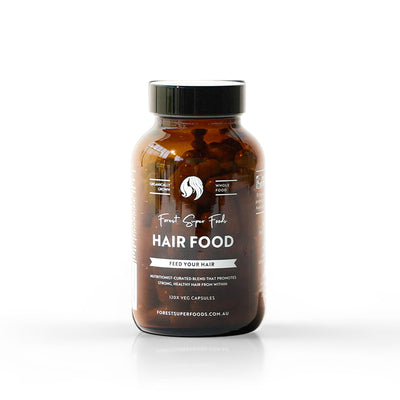
|
Frequently Asked Questions
What does Ashwagandha do for the body?
Ashwagandha is a traditional adaptogen known for helping the body manage stress. It may support hormone balance, improve energy levels, reduce anxiety, and enhance sleep quality. Some studies also suggest benefits for brain function, endurance, and immunity.
Is Ashwagandha allowed in Australia?
Yes, Ashwagandha is approved for use and sale in Australia as a listed ingredient in supplements. At Forest Super Foods, we ensure our Ashwagandha is 100% organic and compliant with Australian standards and regulations.
What happens if I take Ashwagandha daily?
Many people take Ashwagandha daily for long-term stress support, improved mood, and better sleep. Most benefits are noticed gradually over weeks. Always follow the recommended dose and consult a healthcare professional if you're on medication or managing a health condition.
Does Ashwagandha have side effects?
Ashwagandha is generally well tolerated, but in some cases, it may cause digestive upset, drowsiness, or hormonal effects. It's not recommended during pregnancy, and people with thyroid conditions or autoimmune disorders should consult their doctor first.
Does Ashwagandha make you sleepy?
Ashwagandha doesn't act like a sedative, but it may promote relaxation and help reduce overactive stress responses. This calming effect may support deeper sleep at night without causing grogginess during the day.
How long does it take for Ashwagandha to kick in?
Most people start noticing effects within 2 to 4 weeks of consistent use. However, it can vary depending on your health, dosage, and what you're using it for (e.g., stress, sleep, energy, or hormones).



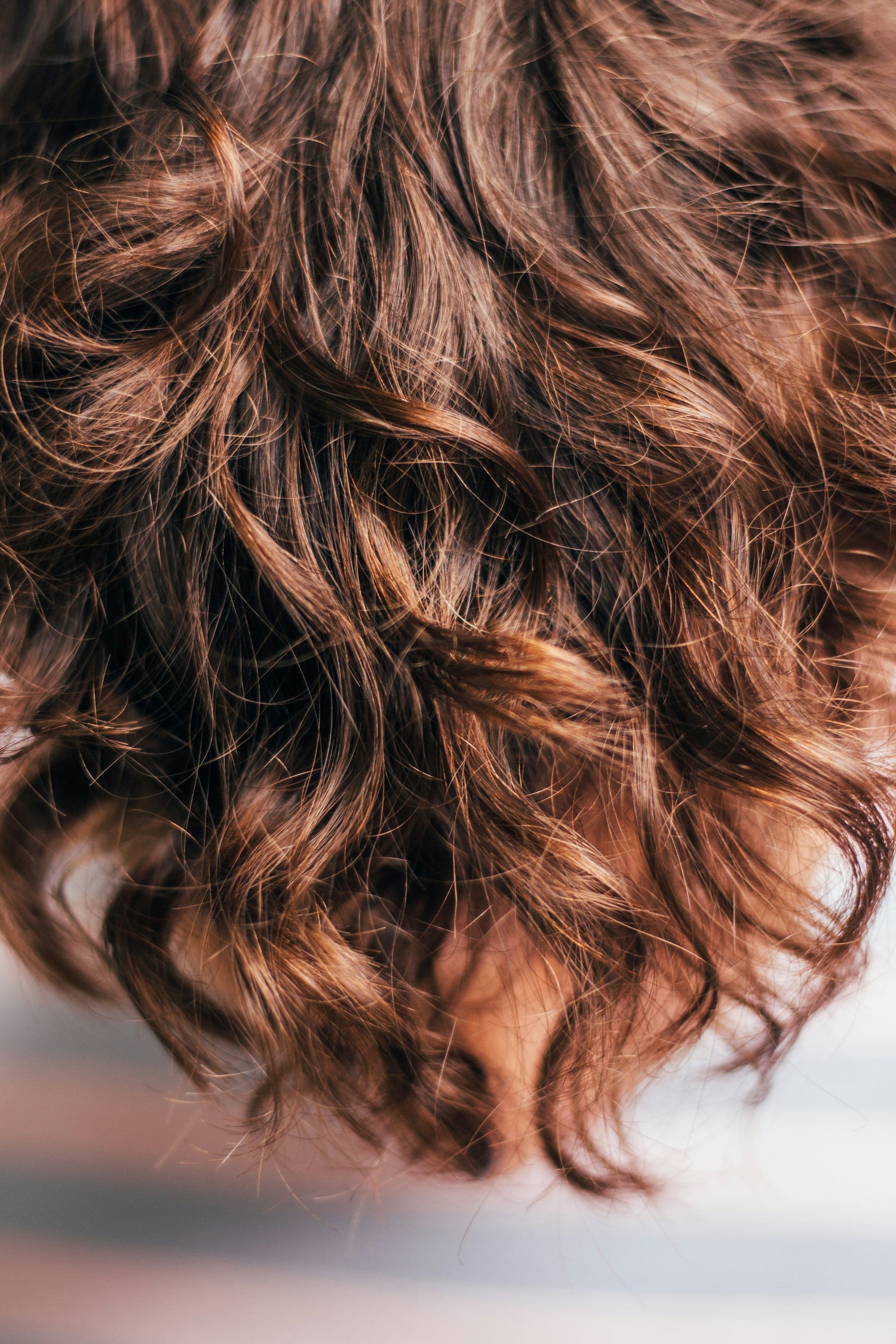



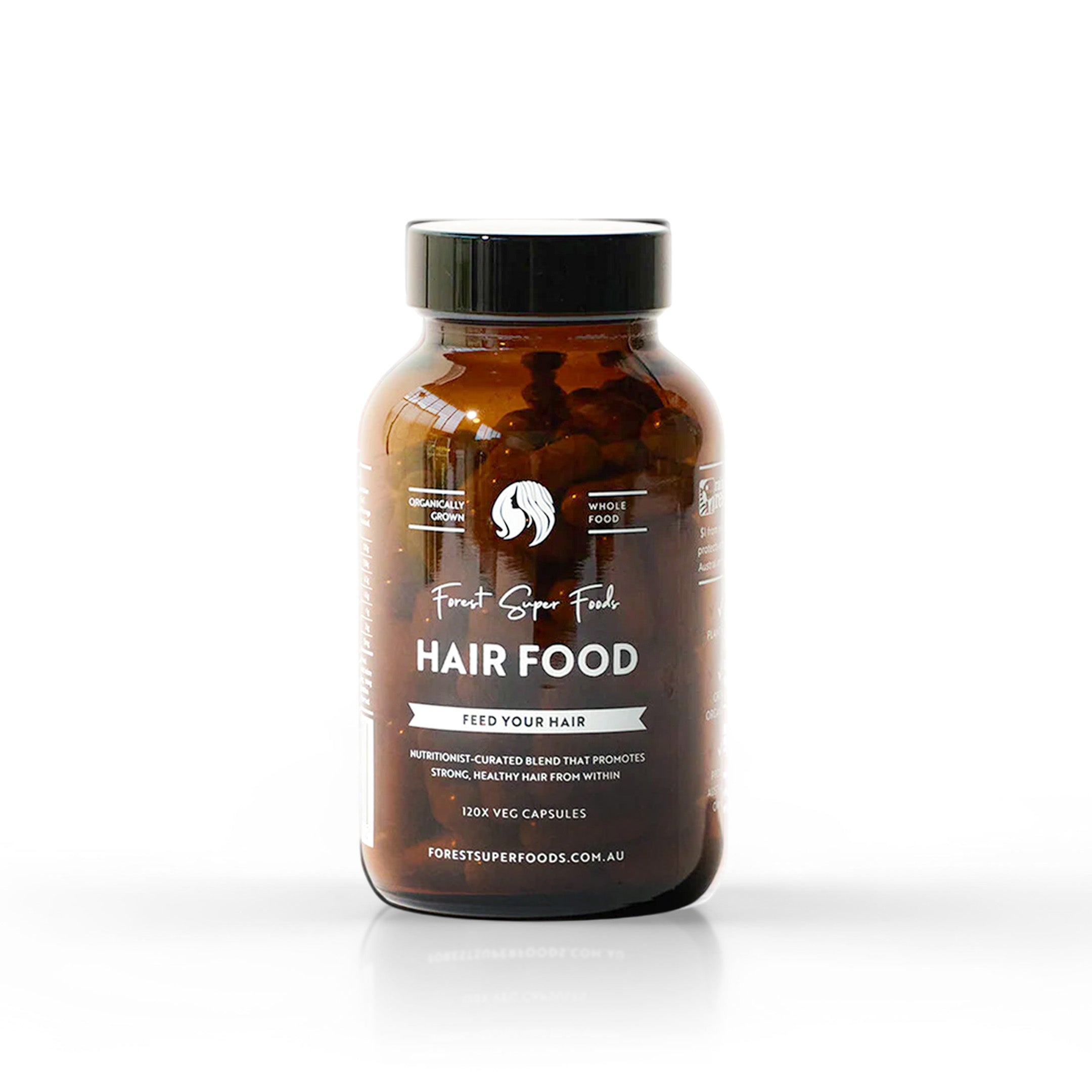
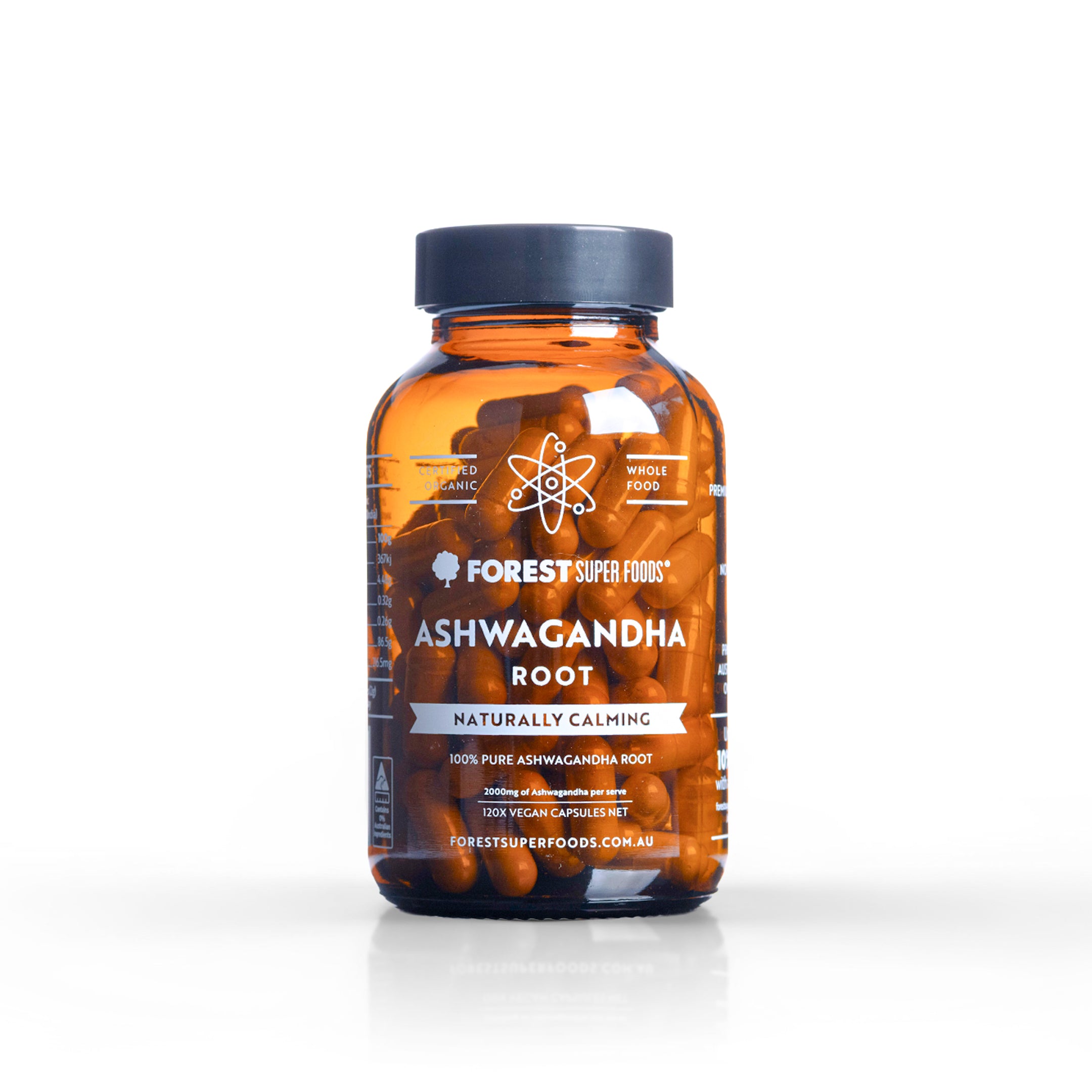
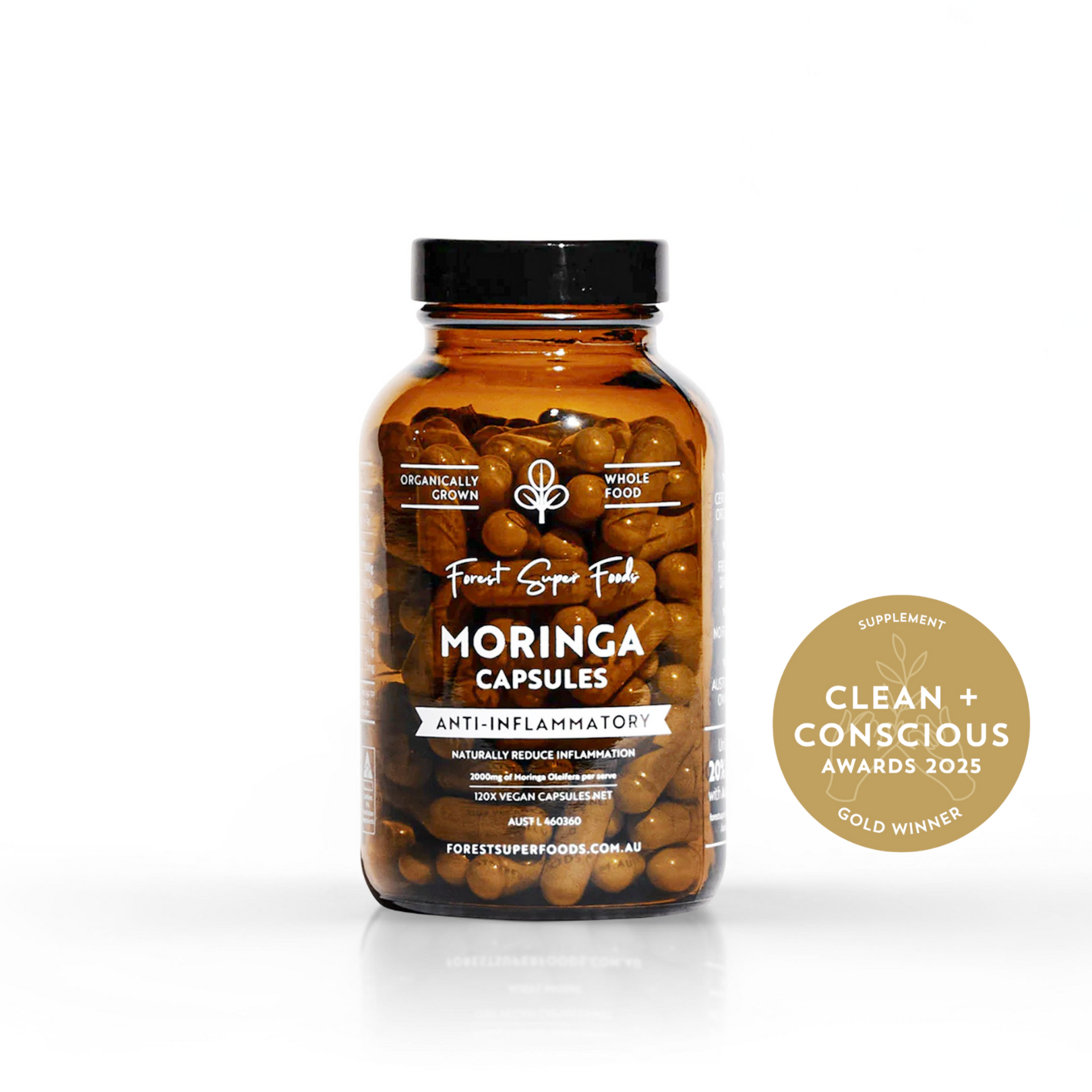
Leave a comment
All comments are moderated before being published.
This site is protected by hCaptcha and the hCaptcha Privacy Policy and Terms of Service apply.